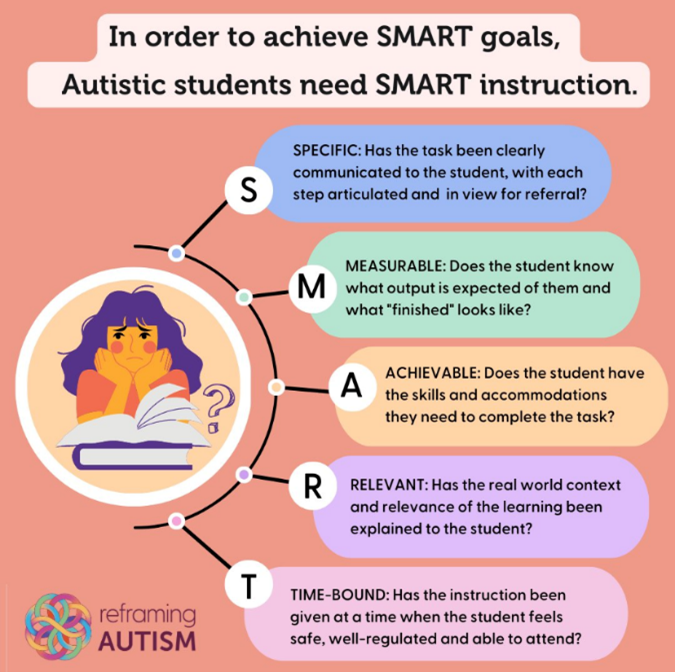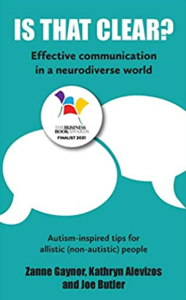Some autistic people are entirely non-speaking and some are what is sometimes described as ‘selectively mute’ – meaning they can speak in some situations and not in others. This is caused by anxiety and is NOT a deliberate choice.
Many autistic people can speak with ease and have no difficulty using language. However, even some with high level language skills, may struggle to speak or understand in certain high stress situations – perhaps due to sensory or social overwhelm or unpredictable situations.
You should never assume that an autistic person who uses high level language will always understand everything you say or will always be able to express themselves well – either verbally and/or in writing, and you should also never assume that someone who is non-speaking or may struggle with speaking clearly and consistently does not understand you.
So, with all the above in mind, it is important for school staff to have a clear understanding of any autistic child’s individual communication needs.
If a child has very particular communication needs, you can consider making them a Communication Passport to help others understand these needs.
Click here to find out more about creating a Communication Passport.
What might help
If you are concerned that school staff are not communicating in ways that support your autistic child, you could share advice with them on what you know works best.
Autistic people often struggle to understand when people are not clear and precise with the way they communicate.
It is helpful if other people communicate in the following ways:
- Use clear, direct, precise, unambiguous language
- Keep it simple, keep it clear – and avoid dropping hints
- For example, say ‘Please correct your spelling’ – NOT ‘I can see some spelling mistakes’.
- Say ‘write three sentences about what you did in the holidays’ – NOT ‘Write about what you did in the holidays’
- Avoid idioms – such as ‘pull your socks up’ or ‘he let the cat out of the bag’ – or explain them
- Autistic people may struggle to understand sarcasm and know whether you are joking or being serious. This can make them feel confused and vulnerable, so it is best to avoid putting them in this position. If you do say something sarcastically or as a joke, check with them that they have understood
- Keep instructions and new information short and simple
- Check back to see if they have understood
- Keep instructions SMART (see Reframing Autism visual below)
- Break down instructions or big tasks into small components
- For important things you have said, give written or picture reminders on paper – or give the person time and support to write them down
- Homework instructions should be given in a consistent way – for example, always upload to the school homework app or always written in a homework diary
Communication resources
You may wish to print this visual from Reframing Autism to share with your child’s teachers:

 Is That Clear? Effective Communication in a Neurodiverse World – by Z Gaynor, K Alevizos and J Butler
Is That Clear? Effective Communication in a Neurodiverse World – by Z Gaynor, K Alevizos and J Butler
An excellent book that gives clear information on the best ways to communicate with autistic people.
- Click here for information from the National Autistic Society about communication.
- Click here for general and detailed information about autistic communication and factors that influence social relationships from an autistic speech and language therapist
- For children with significant difficulty communicating verbally, consider AAC. Click here to find out more and why it is never too early to start
- Click here for advice for any adult communicating with any neuro-divergent child or young person – such as someone who is autistic
- Click here to learn about Dr Damian Milton’s theory of the Double Empathy Problem – to help you understand more about autistic communication. For an easy explanation, check out the fantastic comic from autistic illustrator Tzipporah Johnston – and whilst you are on her website look at her other amazing creations!
For links to all our school related articles, click on the link below:


